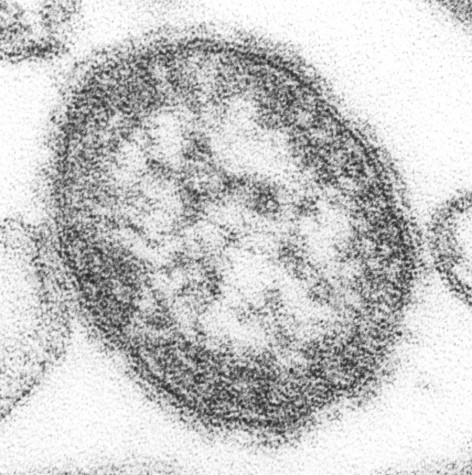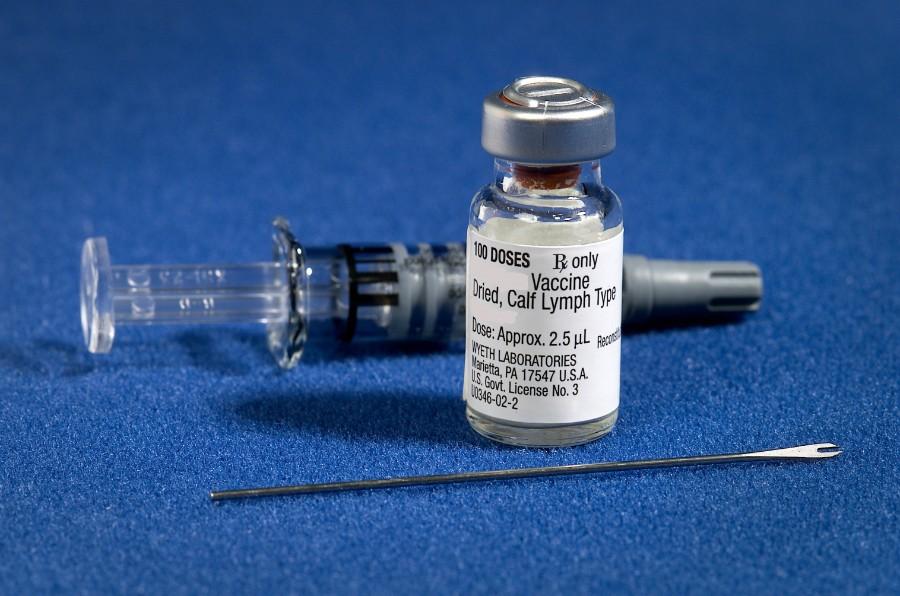Measles outbreak perpetuates vaccination debate
IMAGE / Wikipedia
The recent rise in measles cases in the United States has rekindled the debate about vaccines and autism.
Measles, a virus that causes a rash on the skin, is especially dangerous to pregnant women, people with weak immune systems, and infants who are too young to get the vaccine.
In 2000, the disease was first declared eradicated from the United States because of a highly effective measles vaccine.
The vaccine, licensed in 1963, is said to be 93 percent effective at preventing measles with one dose and 97 percent effective with a second dose.
However, foreign travelers often bring the measles into the country, infecting those who do not have the vaccination.
In recent years, a growing number of parents have opted not to have their children vaccinated, claiming a link between vaccines and autism.
There were more cases of measles in 2014 than any year since 1994.
The rise in measles cases in the United States only serves to confirm the fact that people are not getting the vaccine.
According to the Centers for Disease Control and Prevention, one in 12 babies born in the United States does not receive the first dose of MMR, measles, mumps and rubella, vaccine on time.
From Jan. 1 to Jan. 30, 102 people from 14 states reported having measles. Most outbreaks of the virus have occurred in areas with high concentrations of unvaccinated people.

The measles virus used to infect almost everyone until the vaccine was developed in 1963.
In December 2014, there was a measles outbreak in Disneyland when one infected person went to the park and spread the virus.
Since then, at least 50 measles cases have been linked to the initial Disneyland exposure. Most of the infected people had not received the measles vaccination.
Public health experts say that success at containing the outbreak will largely depend on how many unvaccinated people get the measles shot.
The CDC recommends getting 28 doses of 10 different vaccines for kids aged zero to six. However, there are no U.S. federal laws that mandate vaccination.
All 50 states require certain vaccinations for children entering public schools.
However, most states offer medical and religious exemptions, and some states allow philosophical exemptions. This opens the door for unvaccinated children to get diseases that could be prevented with proper vaccination.
Still, public opinion on vaccines varies.
According to a survey of 36 people from this area, about 81 percent of those surveyed supported vaccines, while only 19 percent were against the use of vaccines.
Many students against the use of vaccines, including junior Joseph Angliss, believe that vaccines should not be used unless their safety is scientifically proven.
“I believe (vaccines) shouldn’t be forced upon people until they’re proven not to cause genetic or health defects,” Angliss said.
However, junior Jenny Delong said that she “does not understand why people don’t get vaccines.”
“People should get vaccines because they will protect them in case of an outbreak of a disease,” Delong said.
The varied viewpoints on the use of vaccines stem from the countless articles aiding the vaccine debate. Most doctors want their patients to be vaccinated, while the debate against vaccination stems from the public.
Since the Disneyland measles outbreak, parents who refuse to vaccinate their children based on religious or philosophical views have been defensive against many doctors and public health officials urge people to get the MMR vaccine.
Many people do not see the dangers of not getting the measles vaccine (or any other vaccine). Measles is not just a rash. It can cause many other complications, like pneumonia, croup, and diarrhea.
The worst possible complication, however, is encephalitis, which occurs in about one in 1,000 measles cases and can cause death or permanent brain damage.
Also, measles can spread before the infected individuals even know they have it. The disease is contagious four days before and after the symptoms show up.
The disease is also incredibly contagious among those who have not been vaccinated. Those who are not immune have a nine out of 10 chance of contracting the disease through close contact.
There is also a 3 percent chance of getting infected after getting two doses of the vaccine.

Class: Senior
Extracurricular Activities: Drama Club, Thespian Society, National Honor Society
Sports: Soccer
Hobbies/Interests: Reading, Writing,...











